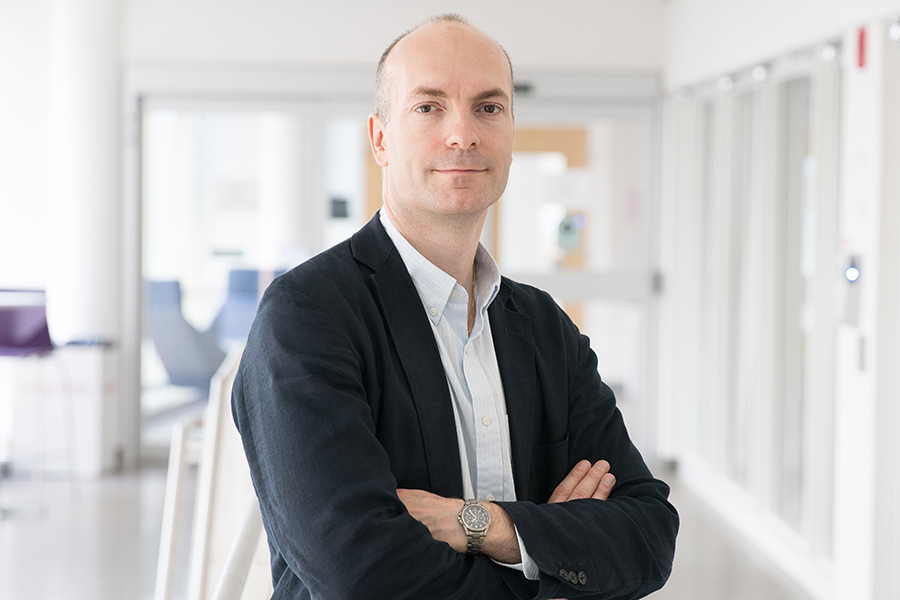
Christin named Societal Computing Director
By Josh Quicksall
Nicolas Christin, faculty member in the Institute for Software Research (ISR) and the Department of Engineering and Public Policy (EPP), has been named the new director of the Societal Computing Ph.D. program.
Founded in 2003 by Kathleen M. Carley, Norman Sadeh, and Latanya Sweeney (now at Harvard); the Societal Computing program seeks to design computing technologies to address societal needs and concerns as they emerge. By bridging disciplinary gaps between computer science and social science, the Societal Computing program is one of very few academic programs equipped to provide graduates the intellectual tools, skills, and knowledge necessary to design societal scale technologies and develop effective policy responses.
The program has been led since 2013 by Jim Herbsleb. Although he is now stepping down as a part of the regular rotation of academic program leadership, Herbsleb’s accomplishments and legacy are of significant note. “Jim has been a capable and effective leader” notes ISR Director, Bill Scherlis. “The program has a strong and positive culture, a growing applicant pool, great destinations for its graduates, strong staff support, and an unwavering commitment from the many faculty involved.”
Stepping into the role, Christin is well prepared to take the reins. A faculty member since 2005, Christin holds appointments in ISR and EPP and also serves as a core faculty member in CyLab, Carnegie Mellon’s university-wide security institute. He has previously served as Associate Director of the Information Networking Institute as well as a research faculty member in the Department of Electrical and Computer Engineering.
Christin’s research builds on his expertise in systems, networking, and policy, with a focus on computer and information systems security. He is a recognized expert on cybercrime, and has testified before Congress on the subject. He has published widely, and his group’s work has won recognition from top conferences, including ACM Conference on Human Factors in Computing Systems (CHI) and the USENIX Security Symposium.
Taking the helm, Christin notes that although computing was once a highly specialized discipline, its reach has now extended into almost every facet of modern life, ranging from home automation to news propagation and financial systems. “This poses incredible challenges, as computing is still very much a developing science, but also presents us with a tremendous opportunity to shape the kind of future we want to have as a society,” he explains. “That's why I'm so excited to have been selected as the next director of the Societal Computing program — I cannot think of a higher impact program in my field of study.”